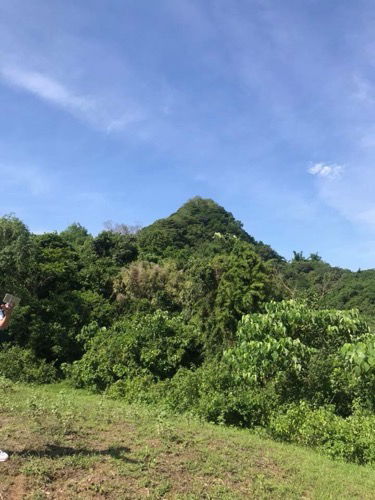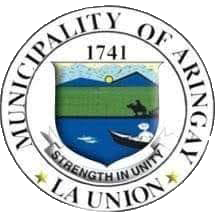Bubon in Ilocano means deep well where we usually get water. While posi means where a new growth comes from. When taken together, a new growth coming from the well. Bubon posi refers to the protruding part of the mountain of the same name located in Sta. Rita East, Aringay, La Union. It is a town landmark so to speak as it is the highest point in Aringay topography. It is around 325 meters above sea level and can be seen from any vantage points from the east, west, south or north as you approach downtown Aringay. Its conical apex is a sort of wonder and thus tales abound about the mountain.
The first legend is related to the Aringay legend. It had been said that when Aring and Bugbugtong died almost in succession, they were laid to rest in the mountain. The mountain was revered so much because of this until one day, the mountain was noted to be going up with a protruding conical apex. The people perceived that the cone was to show how towering Aring’s love to the community. They also noted trees with berry-like fruits and they named them Bugnay and the trees that gave star-flowers were named Bagbagkong in honor of Bugbugtong who eventually became their village chieftain. At the mountain base, springs sprout out that gave the villagers a continuous supply of water. Eventually, they called the area Bubon Posi. One of the villages in the barrio was even named Bugbog derived from the name Bugbugtong!
Then came the next legend which was more contemporary. The buzz among the townsfolk was that the mountain was a sleeping or dormant volcano. According to people, during the American period, the area grumbled and the peak started to illuminate. It was said that the Americans brought big steel chains and placed it around the volcano to prevent it from erupting. This urban legend still persists up to this day.

What is real?
Bubon Posi is one of Aringay’s last frontier. It is a forest reserve. It abounds of indigenous trees and springs. The Aringay watershed is located in the area. It is therefore a must to protect the area from the encroachment of commerce and civilization. It must be replenished with indigenous stock. It must be revered because it is a source of life.
Now on the issue of it, being volcanic in origin, first of all, the story is preposterous. No amount of putting large chains can prevent a volcanic eruption. The Aringay fault line passes through the Aringay river. A movement of the fault line will cause a grumbling noise if an earthquake occurs such as the devastating earthquakes in 1892 and 1990. I have a suspicion however that the grumblings were a result of the coming of the Americans to Aringay as they came with trucks and other vehicles pulled with big chainsduring World War II. As the northern part of Aringay were occupied by the Japanese, the roars of the incoming trucks and the clanging sounds of the chains by the American trucks were enough to instill fear and creativity among the populace. The point that they see the convoy from Sta. Rita and passing through the Aringay river is enough to spin a tale among the people.
Added to this, sometime in 1998, I was elected as a Sangguniang Bayan Member of the town then, we were visited by members of the Philippine Institute of Volcanology and Seismology to see and observe and do tests how the Aringay fault is behaving,I asked them if Bubon Posi is a dormant volcano and the categorical answer was NO. They asked me why I asked that question and when I told them about the story, they started laughing as the story was an unfounded tale that I discussed to you earlier.



